Songcheol Hong
Sub-Nyquist Sampling OFDM Radar With a Time-Frequency Phase-Coded Waveform
Mar 21, 2024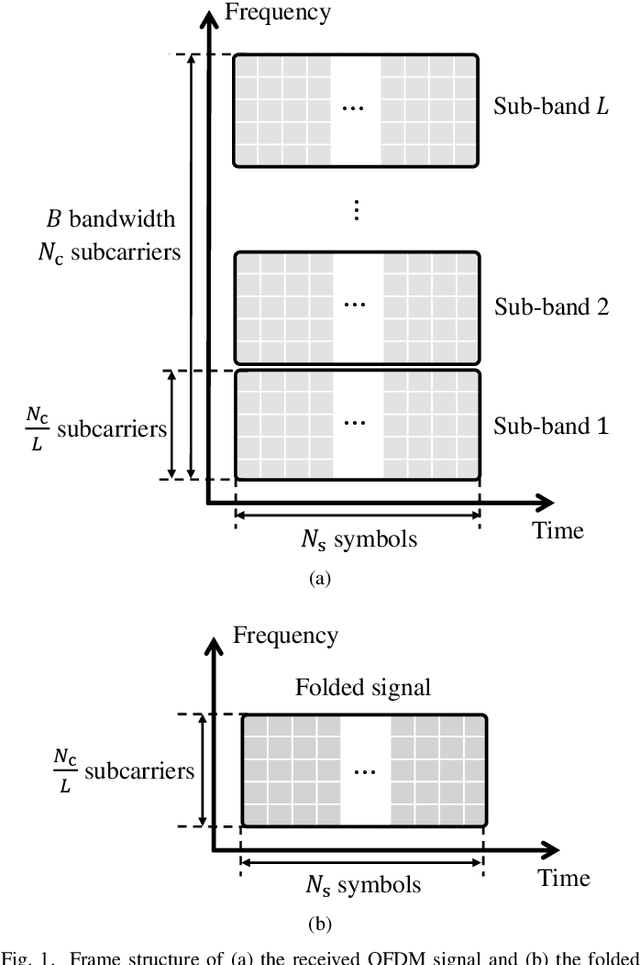
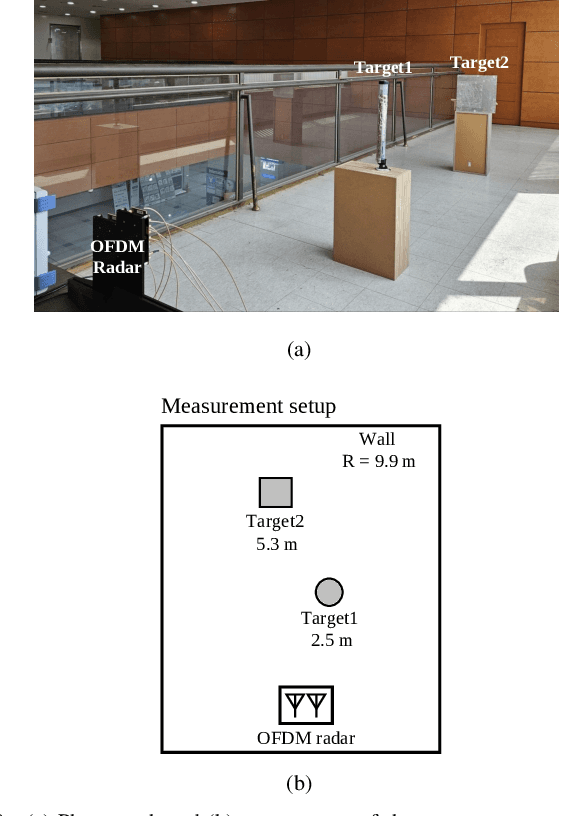
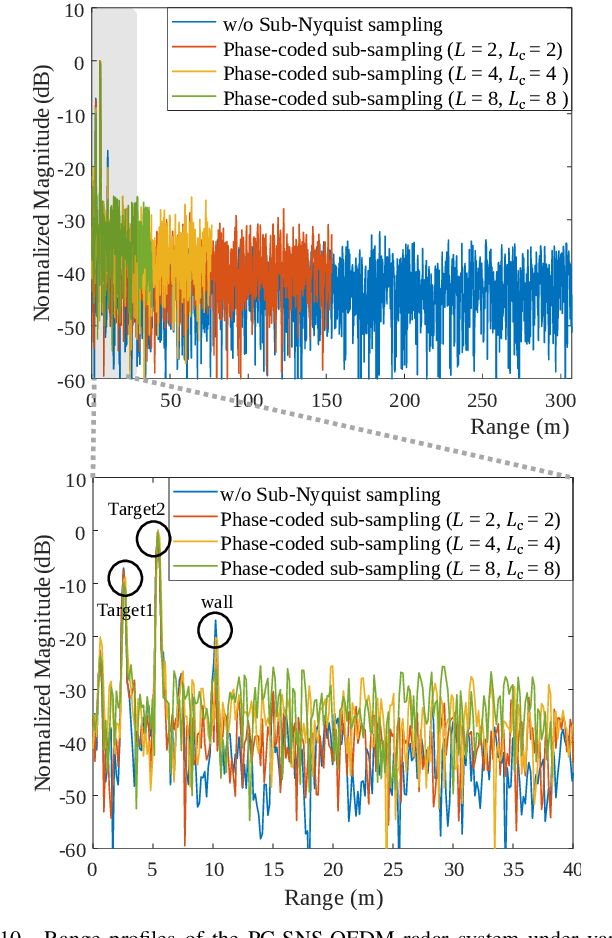
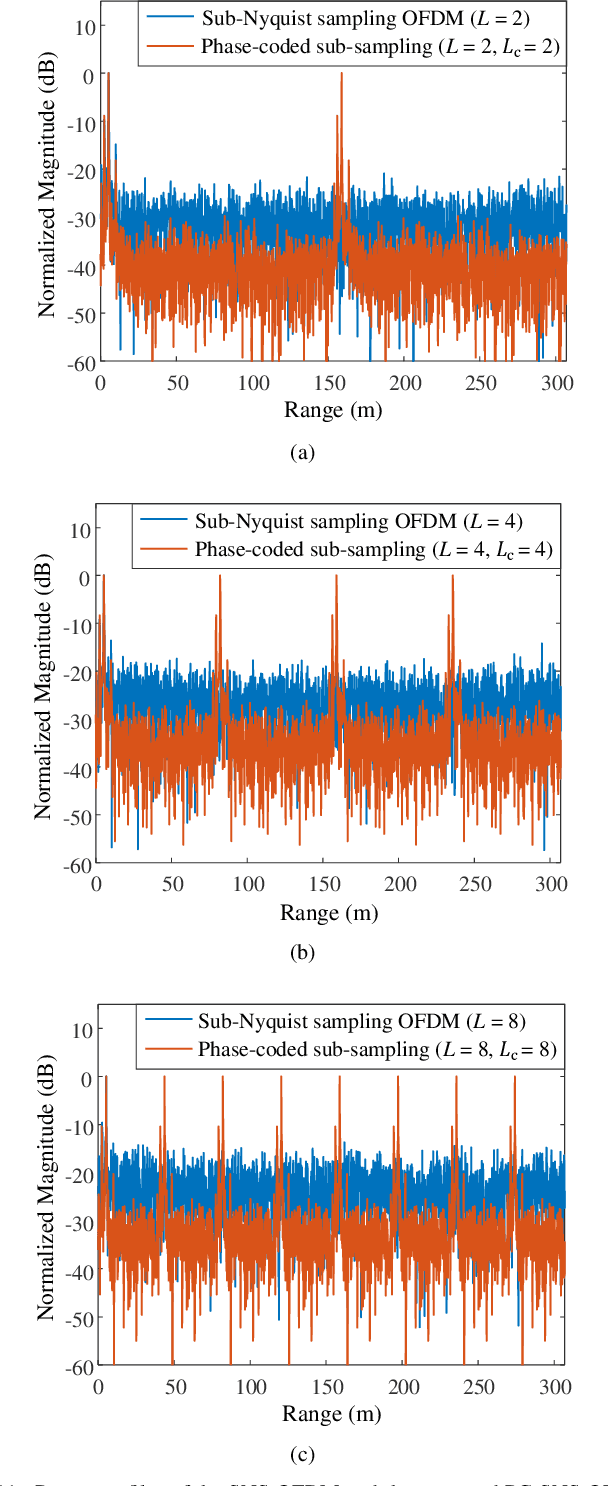
Abstract:This paper presents a time-frequency phase-coded sub-Nyquist sampling orthogonal frequency division multiplexing (PC-SNS-OFDM) radar system to reduce the analog-to-digital converter (ADC) sampling rate without any additional hardware or signal processing. The proposed radar divides the transmitted OFDM signal into multiple sub-bands along the frequency axis and provides orthogonality to these sub-bands by multiplying phase codes in both the time and frequency domains. Although the sampling rate is reduced by the factor of the number of sub-bands, the sub-bands above the sampling rate are folded into the lowest one due to aliasing. In the process of restoring the signals in folded sub-bands to those in full signal bands, the proposed PC-SNS-OFDM radar effectively eliminates symbol-mismatch noise while introducing trade-offs in the range and Doppler ambiguities. The utilization of phase codes in both the frequency and time domains provides flexible control of the range and Doppler ambiguities. It also improves the signal-to-noise ratio (SNR) of detected targets compared to an earlier sub-Nyquist sampling OFDM radar system. This is validated with simulations and experiments under various sub-Nyquist sampling rates.
Sub-Nyquist Sampling OFDM Radar
Aug 03, 2023
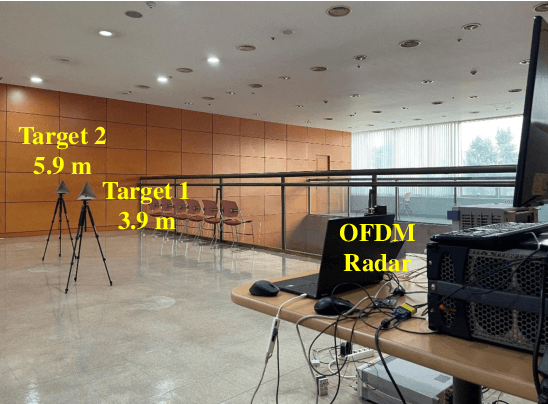
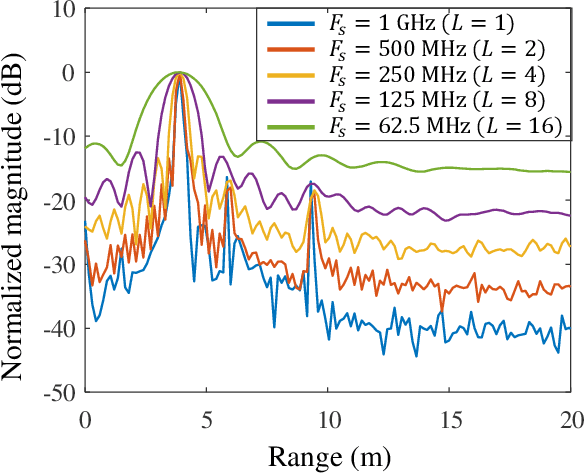
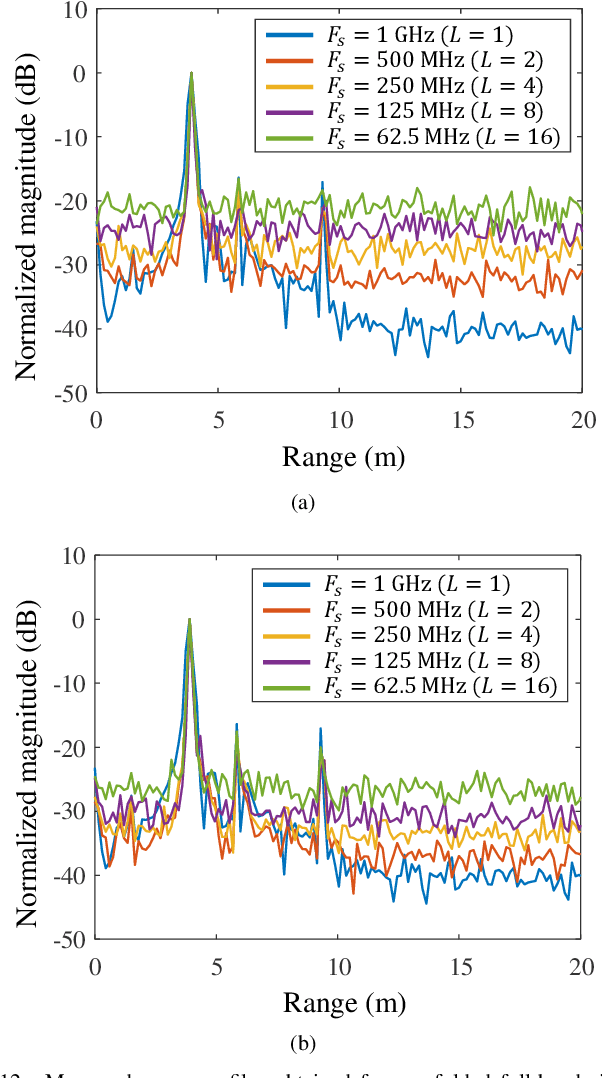
Abstract:In this paper, we propose a sub-Nyquist sampling (SNS) orthogonal frequency-division multiplexing (OFDM) radar system capable of reducing the analog-to-digital converter (ADC) sampling rate in OFDM radar without any additional manipulations of its hardware and waveform. To this end, the proposed system utilizes the ADC sampling rate of B/L to sample the received baseband signal with a bandwidth of B, where L is a positive proper divisor of the number of subcarriers. This divides the baseband signal into L sub-bands, folding into a sub-Nyquist frequency band due to aliasing. By leveraging known modulation symbols of the transmitted signal, the folded signal can be unfolded to the full-band signal. This allows an estimation of target ranges with the range resolution of the full signal bandwidth B without the degradation of the maximum unambiguous range. During the signal-unfolding process, the signals from other sub-bands remain as symbol-mismatch noise (SMN), which significantly degrades the signal-to-noise ratio (SNR) of the detected targets. It also causes weaker targets to be submerged under the noise in range profiles. To resolve this, a symbol-mismatch noise cancellation (SMNC) technique is also proposed, which reconstructs the interfering signals from the other sub-bands using the detected targets and subtracts them from the unfolded signal. As a result, the proposed sub-Nyquist sampling OFDM radar and corresponding signal processing technique enable a reduction in the ADC sampling rate by the ratio of L while incurring only a 10 log10 L increase in the noise due to noise folding. This is validated through simulations and measurements with various sub-sampling ratios.
ORORA: Outlier-Robust Radar Odometry
Mar 03, 2023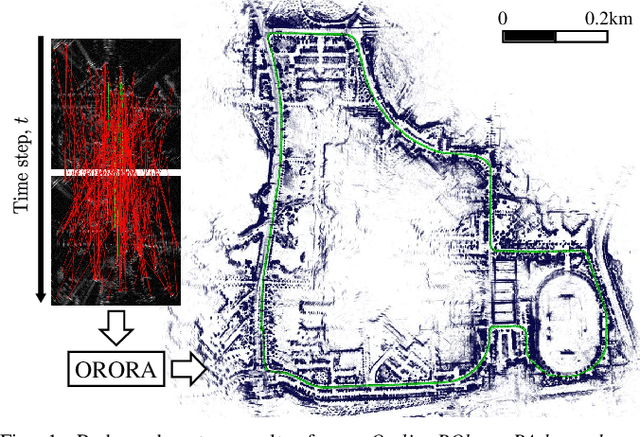

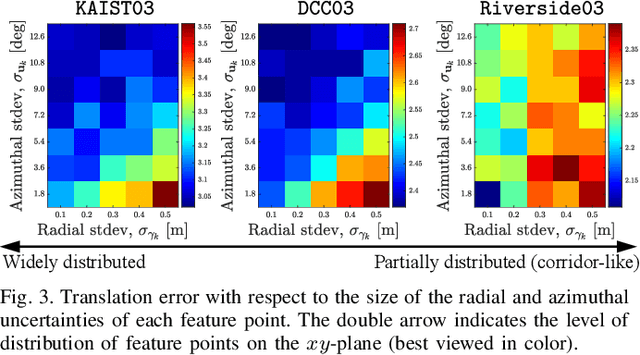
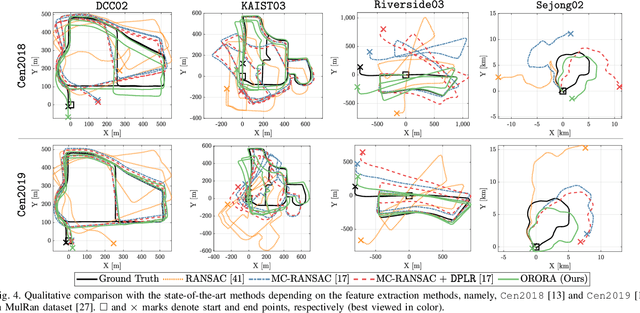
Abstract:Radar sensors are emerging as solutions for perceiving surroundings and estimating ego-motion in extreme weather conditions. Unfortunately, radar measurements are noisy and suffer from mutual interference, which degrades the performance of feature extraction and matching, triggering imprecise matching pairs, which are referred to as outliers. To tackle the effect of outliers on radar odometry, a novel outlier-robust method called \textit{ORORA} is proposed, which is an abbreviation of \textit{Outlier-RObust RAdar odometry}. To this end, a novel decoupling-based method is proposed, which consists of graduated non-convexity~(GNC)-based rotation estimation and anisotropic component-wise translation estimation~(A-COTE). Furthermore, our method leverages the anisotropic characteristics of radar measurements, each of whose uncertainty along the azimuthal direction is somewhat larger than that along the radial direction. As verified in the public dataset, it was demonstrated that our proposed method yields robust ego-motion estimation performance compared with other state-of-the-art methods. Our code is available at https://github.com/url-kaist/outlier-robust-radar-odometry.
 Add to Chrome
Add to Chrome Add to Firefox
Add to Firefox Add to Edge
Add to Edge